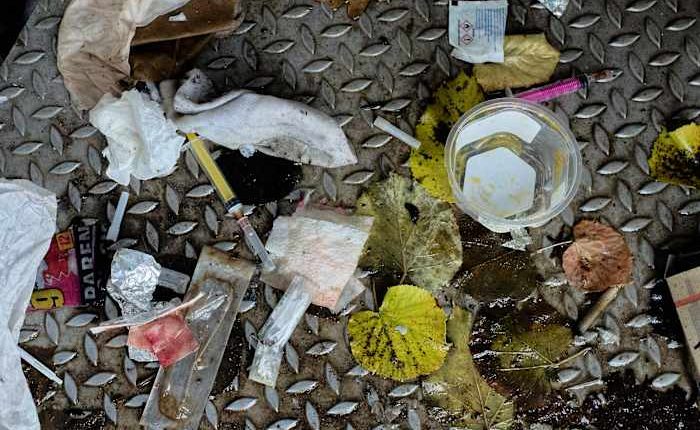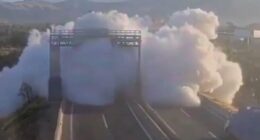Share this @internewscast.com

Europe’s leading official on monitoring illegal drugs has a final message as his career draws to a close: the continuous increase in cocaine and other stimulant trafficking is causing unprecedented levels of violence in the world’s most peaceful societies.
Alexis Goosdeel, a Belgian clinician at the helm of the European Union Drugs Agency since January 2016, has witnessed this situation across Europe, including his own country. Most drug seizures have moved from Europe’s southern borders to its northern ports. In particular, Antwerp has become a significant entry point for cocaine and crack, leading to increasing gang violence and even shootouts near the European government hub.
He pointed out to The Associated Press via a video link from Lisbon, Portugal, where his agency is headquartered, that this represents a widespread threat to the continent as a whole.
“For people living in Brussels, that’s the first time in the history of the country … that you have episodes with weapons, with guns, in the center of Brussels,” Goosdeel said. “And this happens 2,000 meters (1.2 miles) from the building of the European Parliament, in a city that was felt and perceived by people to be quite safe.”
He noted the globalization of drug gangs — for example groups from the western Balkans arrested in Andean nations in South America. And he pointed to the new phenomena of gangs using social media to recruit at-risk youths, some of whom are recent arrivals to Europe as undocumented migrants.
“We don’t understand yet what are the root causes of this change of behavior among young teenagers or adolescents who embarked on ultra-violent behavior without having really a past of delinquency,” he said. “And some of them do not hesitate to take pictures or to make a movie of what they are doing and to share it on some social media.”
Public health
The European Union Drugs Agency’s annual report released on Thursday found that in 2023 cocaine seizures in Europe hit a record for a seventh straight year, with 419 tonnes (462 tons) of cocaine confiscated by officials. Belgium led the way with 123 tonnes, followed by Spain (118 tonnes) and the Netherlands (59 tonnes), as the three countries with major ports accounted for 72% of the total amount grabbed by agents.
The report, which covers the EU as well as Norway and Turkey, highlighted Spain’s largest-ever seizure, of 13 tonnes of cocaine hidden in bananas from Ecuador, as an example of cartels’ use of standard shipping lanes.
Besides warning policymakers across the EU’s 27 capitals to prepare for more violence, Goosdeel sounded the alarm about a looming public health threat. Whereas addiction and overdose from opioids can be treatable, that’s not the case for stimulants.
Their growing use “suggests that in four or five years time we will face most probably an increase in the needs for treatment and we don’t have any pharmacological standard treatment available,” he said. “You don’t have anything magic in terms of medicine that would help to stabilize them, to cut the craving and to help them really disconnect from this extremely huge addiction. So it’s time to invest.”
Europe remains the leading producer and exporter of ecstasy. The agency’s early warning system to spot new synthetic drugs has identified 1,000 new substances in its 27 years of existence. Goosdeel said he wouldn’t be surprised if, of the total, more than half were detected in the past decade. The period has ushered in “an entirely different world,” he said.
“Drugs are everywhere, including those we produce in Europe. Everything can be used as a drug,” he said.
Don’t ignore the problem
Goosdeel insists that, while policymakers should tackle the issue of drug-related violence, they must continue caring for users rather than jailing or shunning them, as some critics say the United States’ “war on drugs” has done. Europe’s approach has formed the basis of a public health response aimed at helping users overcome their addictions.
“We have learned in Europe, and from what happens outside Europe, that to declare war on the people who are using drugs is not the solution,” he said.
Copyright 2025 The Associated Press. All rights reserved. This material may not be published, broadcast, rewritten or redistributed without permission.











